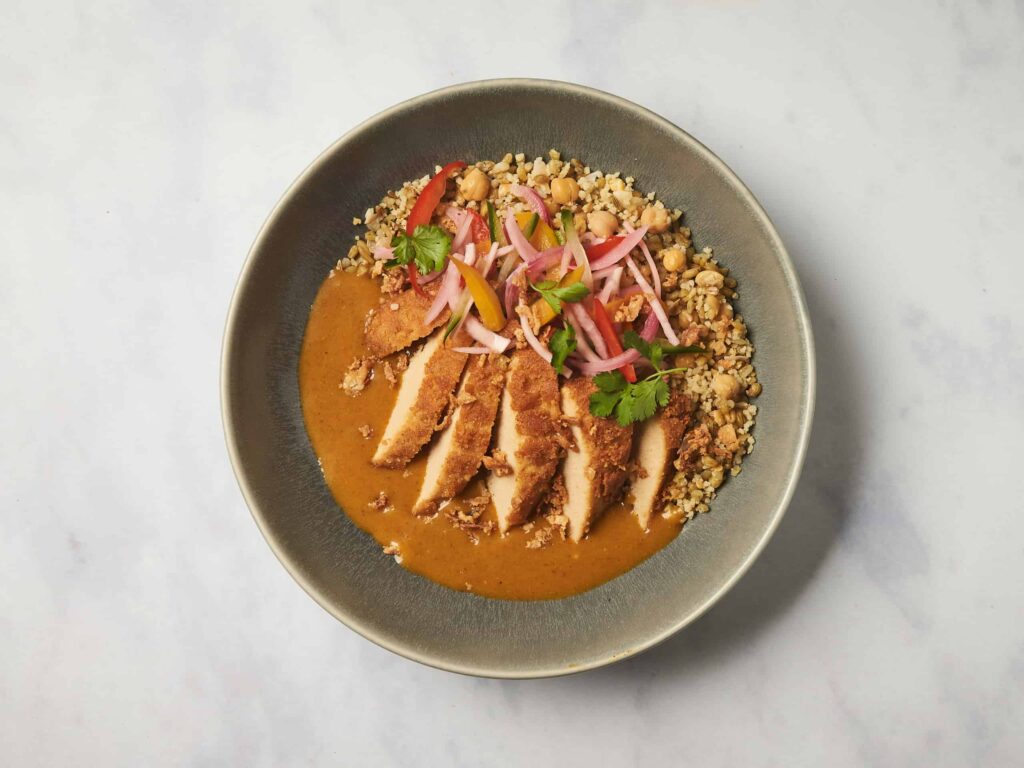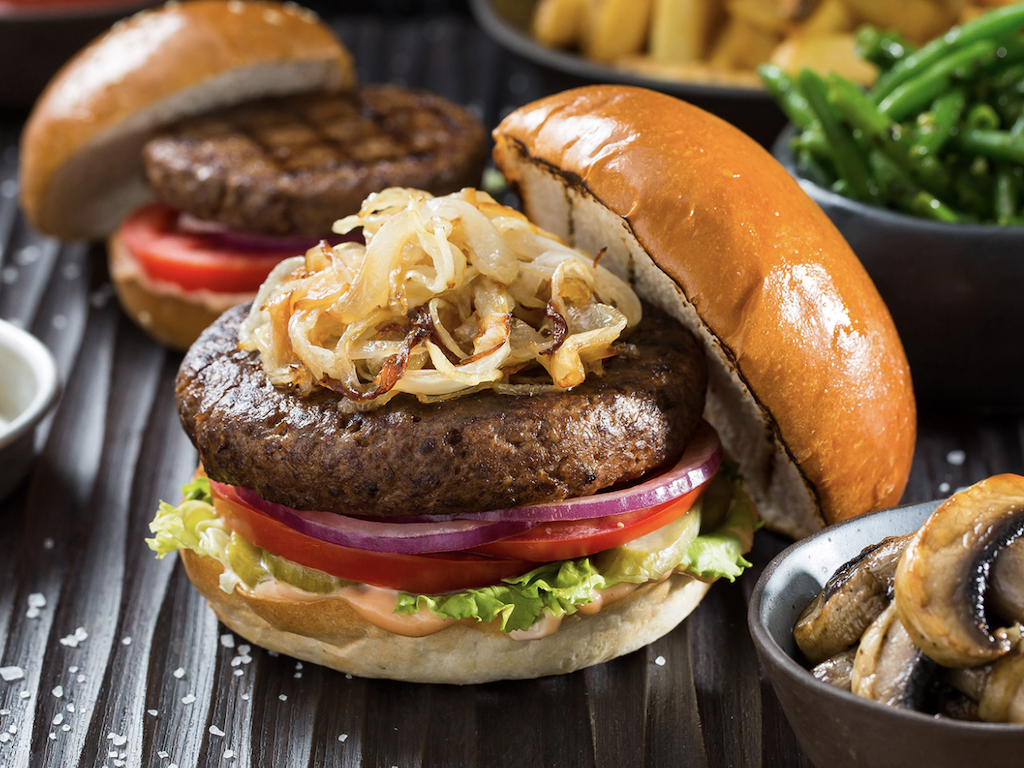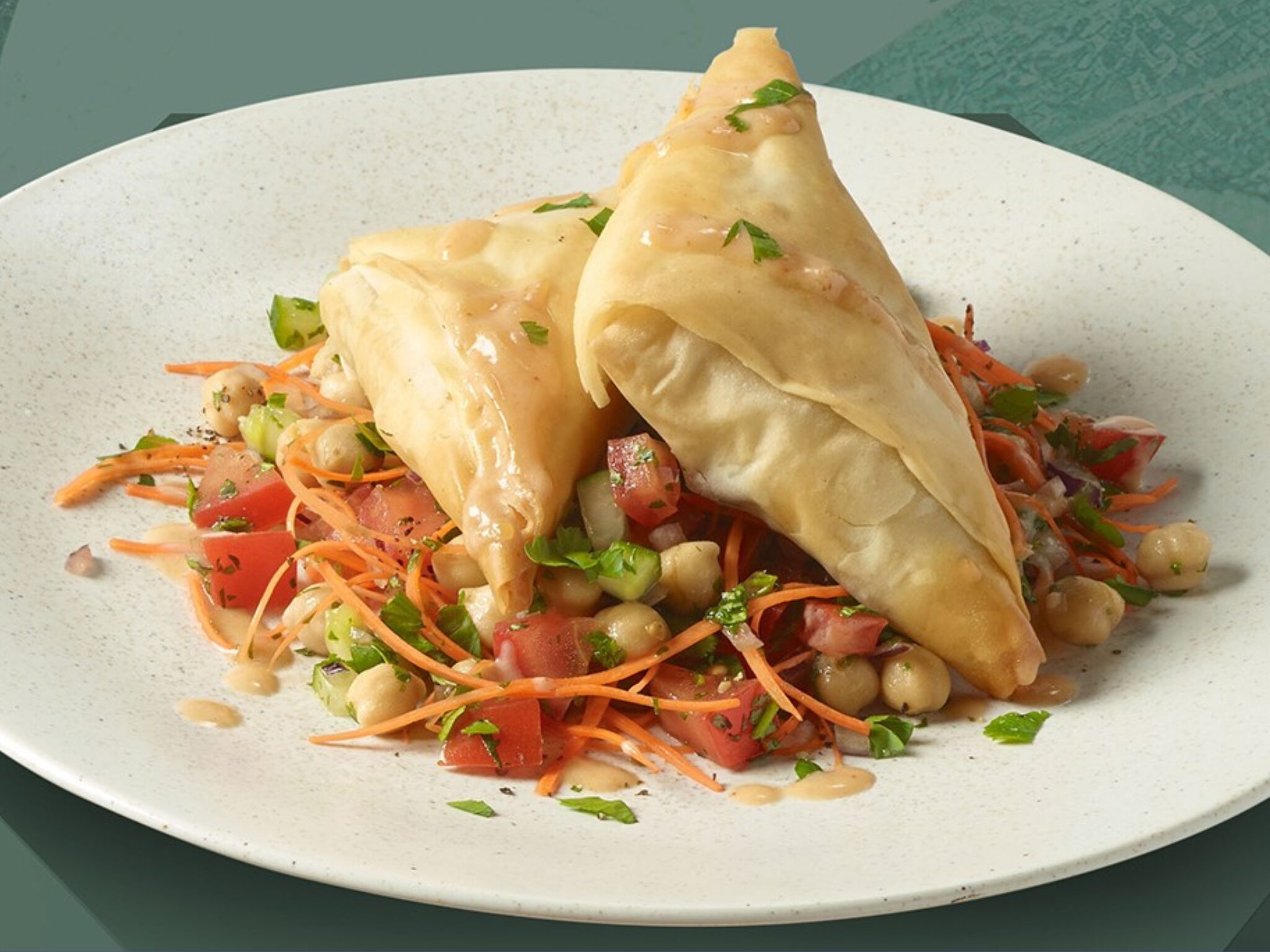Sodexo: Ahead of Schedule on Net Zero Plan as 11% of All UK/Ireland Meals Sold Are Meatless
5 Mins Read
French catering group Sodexo has revealed that 11% of all its meals sold at UK and Ireland sites in 2023 were vegan or vegetarian, a marginal increase from the previous year. It has also made strides in promoting food security, and is ahead of schedule on its net-zero plan.
Japanese Teriyaki Tofu, Southern Indian Chickpea Curry, and Potato and Cauliflower Masala are some of the dishes that have helped Sodexo witness a year-on-year increase in plant-based consumption. From January to November last year, an analysis of over 2.7 million meals across 285 of its UK and Ireland client sites found that 11% were vegan or vegetarian.
This marks an incremental improvement on last year’s share of 10%, and aligns with the company’s social impact pledge and commitment to increase the intake of sustainable meals. The caterer has previously laid out its plans to make 33% of its menus plant-based by 2025, as part of its wider net-zero target for 2040, which it now says is ahead of schedule.
Sodexo makes strides with plant-based meals and net-zero goals

Sodexo research reveals that – like last year – the highest amount of vegan meal consumption occurred in the East Midlands, though its share dropped from 21% to 19%. People chose meat-free dishes 18% of the time in the North West (versus 15% in 2022), 16% in Ireland (versus 8%), 15% in London (versus 11%), 13% in Wales (versus 15%) and 11% in Scotland (versus 10%).
“The increasing preference for meat-free options among our customers is a testament to both the shift in consumer awareness and to the work done by our talented chefs to reformulate menus and create new delicious plant-forward and plant-based recipes,” said Claire Atkins Morris, sustainability director at Sodexo UK and Ireland. “With a wide array of tasty and nutritious options available across our client sites, it is important that our consumers are able to make well-informed decisions about the food they eat.”
The news comes a week after Sodexo announced that it had reduced 37% of its scope 3 emissions (from a 2017 baseline), representing the removal of almost 400,000 tonnes of CO2e by May 31, 2023. That has put the catering company ahead of schedule en route to its 2040 decarbonisation goal – it would have needed to slash emissions by 25.5% by the end of fiscal year 2023 to stay on course, but a faster reduction has meant its footprint is now at 689,172 tonnes of CO2e.
Now, Sodexo has set science-based forest, land and agriculture (FLAG) targets – a 40% absolute GHG emissions reduction by 2030 and a 72% cut by 2040. “Working towards net zero is complex and can be an overwhelming challenge. With multiple data sets and action levers across business activities, it isn’t easy,” said Atkins Morris.
“There are many opportunities for learning, refining and improving as we go. This, naturally, means that we need to be agile to the fast pace of change informed by external factors. This year, for example, we chose to move away from our 2025 carbon-neutral target and reallocate funds to decarbonisation projects. We should all expect to see and be comfortable with changes in our journey, rebaselining and the influences of the external landscape.”
Sodexo was also the subject of a study by Profundo, commissioned by Madre Brava, which looked at the impact of the caterer and five supermarkets switching to 50% plant-based proteins by 2030. It revealed that this would reduce GHG emissions by 31.6 million tonnes per year, which is equivalent to removing over 25 million cars from EU roads. Plus, it would free up 102,000 sq km of land (about the size of Hungary) and save 670 million cubic metres of water (around 268,000 Olympic-size swimming pools) a year.
Global initiatives for sustainable catering

Sodexo’s continued plant-based growth comes at a time when many universities are increasingly adopting plant-based food. Within the UK, the Universities of Stirling, Birmingham, Queen Mary, London Metropolitan, Kent, University College London and Cambridge have already voted to introduce fully plant-based menus at their eateries. In fact, over 650 academics and campaigners have written an open letter to British universities to switch to 100% vegan catering.
But it’s not just the UK that is seeing such advancements in foodservice. In 2021, Sodexo Canada announced it would switch 20% of its protein purchases to plant-based over the next few years, while it aims to turn 42% of its college and university menus vegan in the US, where it also partnered with Israeli food tech startup SavorEat to launch the first 3D-printing robot for plant-based burgers at the University of Denver.
The caterer has previously had a successful corporate pilot with LinkedIn too, where its subsidiary the Good Eating Company and behavioural choice agency Greener By Default combined to halve the carbon emissions of the social media company’s San Francisco office. The 12-week pilot saved 14,400 of CO2e by making two-thirds of the menu vegan, including opting for oat milk as the default coffee bar choice and flavour descriptors over words like “vegan” and “vegetarian” on menu cards.
The results of the research come during Veganuary, which is set to break its partnership record yet again this year. “We are delighted to see an upward trend in Sodexo’s meat-free meal sales again,” said the campaign’s communications head, Toni Vernelli. “Offering tasty and accessible options is crucial in encouraging more individuals to consider plant-based choices.”
This is a trend reflected in the wider catering industry too. Compass Group, the world’s largest catering company, has set the goal of replacing 40% of its animal proteins with plant-based by the end of the decade. Its subsidies Chartwells Higher Education, meanwhile, revealed in November that there has been an increase in students looking for climate-friendly meals in US universities and colleges since the introduction of carbon labels on its menus.
Outside its own menus, Sodexo’s plant-based commitments have extended to its Stop Hunger Foundation, which in 2021 partnered with UK charity Made In Hackney to support its mission to provide free, nutritious vegan meals to over 300 people weekly. “The Stop Hunger Foundation has provided critical support to our community meal service and cookery classes helping us tackle food insecurity for hundreds of households with nutritious, diverse, planet-friendly meals,” said Made In Hackney founder Sarah Bentley.
“Evolving the nation’s eating habits to more plant-centred eating is a crucial tool in the fight against the climate crisis and spiralling lifestyle-related health diseases. It is inspiring to work with the Stop Hunger Foundation and Sodexo as they see the interconnectedness of all these issues and how plant-based food can play a central role in tackling them all.”



